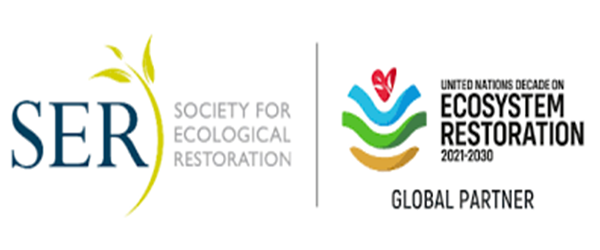SER members are bringing restoration to every corner of the earth For more than three decades, the Society for Ecological Restoration (SER) has given voice to the field of ecological restoration and provided leadership in all aspects of its development. We are a dynamic global network of over 4,000 members who foster the exchange of knowledge and expertise among ecological restoration practitioners and scientists from diverse disciplines and backgrounds. In addition to communicating leading-edge tools, technologies and scientific findings, SER actively promotes best practices and effective restoration policy around the world. We are working to ensure that ecological restoration is recognized and utilized as a fundamental component of global conservation, biodiversity and sustainable development programs, and that ecological restoration projects are designed and implemented in a way that provides people with the opportunity to not only repair ecological damage, but also improve the human condition. Across the globe, centuries of unsustainable activities have damaged the aquatic, marine, and terrestrial environments that underpin our economies and societies. SER is dedicated to reversing this degradation and restoring the earth for the benefit of both humans and nature. Our Mission SER advances the science, practice and policy of ecological restoration to sustain biodiversity, improve resilience in a changing climate, and re-establish an ecologically healthy relationship between nature and culture. Our Vision Ecological restoration becomes a fundamental component of conservation and sustainable development programs throughout the world by virtue of its inherent capacity to provide people with the opportunity to not only repair ecological damage, but also improve the human condition. Our Guiding Values These underlying values guide and inform our work: Ecological restoration is an engaging and inclusive process. Restoration embraces the interrelationships between nature and culture, engages all sectors of society, and enables full and effective participation of indigenous, local and disenfranchised communities Ecological restoration requires the integration of knowledge and practice. All forms of knowledge are essential for designing, implementing and monitoring restoration projects and programs. At the same time, lessons learned from practical experiences are essential for determining and prioritizing the scientific needs of the field. Ecological restoration is policy-relevant and essential. Restoration is a critical tool for achieving biodiversity conservation, mitigating and adapting to climate change, enhancing ecosystem services, fostering sustainable socioeconomic development, and improving human health and well-being. Ecological restoration is practiced locally with global implications. Restoration takes place in all regions of the world, with local actions having regional and global benefits for nature and people
